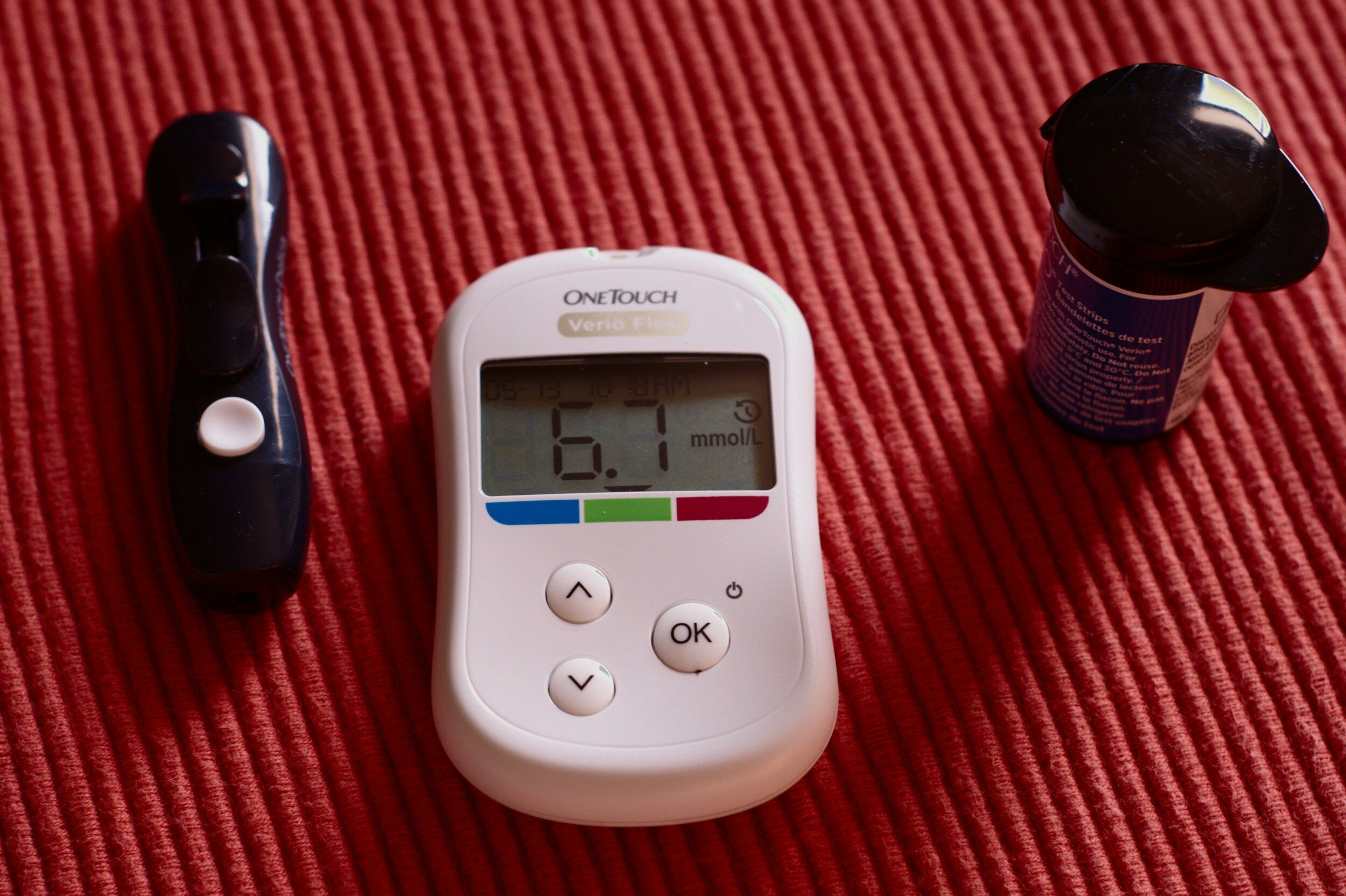
Personal Trainer and Feldenkrais Method Practioner with 20 years Experience in Old Street (Shoreditch) London. One to One and Online.
The Consequences of Poor Sleep
In today's fast-paced world, getting a good night's sleep has become a luxury for many individuals. Whether it be due to work demands, family responsibilities, or simply the inability to unwind, sleep is often sacrificed in favor of other activities. However, the repercussions of consistently getting poor sleep are substantial and can have a profound impact on both physical and mental well-being.
In today's fast-paced world, getting a good night's sleep has become a luxury for many individuals. Whether it be due to work demands, family responsibilities, or simply the inability to unwind, sleep is often sacrificed in favor of other activities. However, the repercussions of consistently getting poor sleep are substantial and can have a profound impact on both physical and mental well-being.
Cognitive Impairment
One of the most immediate consequences of sleep deprivation is cognitive impairment. When sleep is insufficient, concentration, attention, reasoning, and problem-solving abilities are all significantly compromised. Studies have shown that individuals who are sleep-deprived are more likely to make errors at work, have slower reaction times, and experience memory issues. This cognitive fog can have serious implications, especially in situations that require quick thinking and sharp decision-making.
Emotional Instability
Lack of sleep also affects mood regulation. Sleep-deprived individuals often experience irritability, mood swings, and heightened emotional reactivity. Chronic sleep deprivation has been linked to an increased risk of developing mood disorders such as depression and anxiety. Moreover, ongoing poor sleep can strain personal relationships, as individuals may find it challenging to manage their emotions and interact effectively with others.
Physical Health
The impact of poor sleep extends beyond cognitive and emotional well-being and can manifest in physical health problems as well. Research has shown that inadequate sleep is associated with a higher risk of developing chronic conditions such as obesity, hypertension, diabetes, and cardiovascular disease. Additionally, the immune system's ability to fight off infections is compromised when sleep is insufficient, making sleep-deprived individuals more susceptible to illnesses.
Reduced Performance
For those who lead an active lifestyle or engage in sports, the effects of poor sleep on physical performance are particularly noteworthy. Athletes who do not get adequate rest may experience decreased endurance, coordination, and strength. Recovery time after workouts or competitions is also prolonged, hindering progress and increasing the likelihood of injuries. In a competitive environment where marginal gains can make a significant difference, sleep is a critical component of an athlete's training regimen.
Missed Opportunities
Beyond the immediate consequences on health and performance, poor sleep can also lead to missed opportunities in various aspects of life. Whether it be a promotion at work that requires heightened productivity, the chance to engage in social activities with friends, or simply enjoying quality time with loved ones, being sleep-deprived can hinder one's ability to fully participate in and savor life's experiences.
In conclusion, the effects of poor sleep are far-reaching and multifaceted. From cognitive impairment and emotional instability to physical health problems and missed opportunities, the impact of sleep deprivation on overall well-being cannot be overstated. Prioritizing healthy sleep habits is essential for maintaining a balanced and fulfilling life. By recognizing the importance of quality rest, individuals can take proactive steps to ensure they reap the numerous benefits that come with a good night's sleep.
The Importance of Sleep
Lack of sleep or poor sleep quality is a prevalent issue in today's society, often overlooked or seen as a minor inconvenience. However, the effects of insufficient or disrupted sleep on overall health and lifespan are profound and far-reaching. Numerous studies have highlighted the negative consequences of inadequate sleep on both physical and mental well-being.
The Impact of Poor Sleep on Health and Lifespan
Lack of sleep or poor sleep quality is a prevalent issue in today's society, often overlooked or seen as a minor inconvenience. However, the effects of insufficient or disrupted sleep on overall health and lifespan are profound and far-reaching. Numerous studies have highlighted the negative consequences of inadequate sleep on both physical and mental well-being.
The Importance of Sleep
Sleep is a crucial component of a healthy lifestyle, alongside proper nutrition and regular exercise. It is during sleep that the body repairs and rejuvenates itself, crucial for maintaining optimal cognitive function, emotional well-being, and physical health. The National Sleep Foundation recommends that adults aim for 7-9 hours of quality sleep each night to support overall health and well-being.
Health Implications of Poor Sleep
**1. ** Cardiovascular Health:
Poor sleep has been linked to an increased risk of heart disease, hypertension, and stroke.
Sleep deprivation can lead to higher levels of stress hormones and inflammation, contributing to the development of cardiovascular issues over time.
**2. ** Metabolic Health:
Lack of sleep disrupts the body's hormone balance, affecting appetite regulation and metabolism.
Sleep deprivation is associated with weight gain, insulin resistance, and an increased risk of developing type 2 diabetes.
**3. ** Cognitive Function:
Inadequate sleep can impair cognitive function, memory retention, and decision-making abilities.
Chronic sleep deprivation has been linked to a higher risk of neurodegenerative diseases such as Alzheimer's.
**4. ** Mental Health:
Poor sleep is closely linked to mental health conditions such as depression, anxiety, and mood disorders.
Sleep disturbances can exacerbate existing mental health issues and make it harder to cope with daily stressors.
**5. ** Immune Function:
Quality sleep is vital for a healthy immune system, as it helps the body fight off infections and illnesses.
Chronic sleep deprivation weakens the immune response, making individuals more susceptible to infections and delaying recovery.
Impact on Longevity
The cumulative effects of poor sleep on overall health can significantly impact an individual's lifespan. Studies have shown that consistently getting less than the recommended amount of sleep can shorten life expectancy and increase the risk of premature death. Chronic conditions resulting from inadequate sleep, such as cardiovascular disease, obesity, and diabetes, can further reduce longevity.
Improving Sleep Quality and Duration
Addressing poor sleep habits is crucial for improving health outcomes and increasing lifespan. Here are some tips to promote better sleep:
Establish a Consistent Sleep Schedule: Go to bed and wake up at the same time every day, even on weekends.
Create a Relaxing Bedtime Routine: Engage in calming activities before bed, such as reading or meditating, to signal to your body that it's time to sleep.
Optimize Your Sleep Environment: Ensure your bedroom is dark, quiet, and cool to promote restful sleep.
Limit Screen Time: Avoid screens (phones, computers, TVs) at least an hour before bed, as the blue light can disrupt your body's natural sleep-wake cycle. Using blue light blocking glasses as around sun set can help massively as well as dimming your lights.
Practice Healthy Habits: Stay physically active, eat a balanced diet, and manage stress through relaxation techniques or mindfulness.
Consider supplementing with Magnesium: this mineral is typically low in many people and taking 450-600mg of either a glycinate, taurate, threonate or combination 45 mins before bed can work wonders to help promote better quality sleep.
Conclusion
In conclusion, poor sleep quality and inadequate sleep duration have significant implications for overall health and longevity. Prioritizing sleep as a key component of a healthy lifestyle is essential for maintaining physical, mental, and emotional well-being. By recognizing the importance of good sleep hygiene and making conscious efforts to improve sleep quality, individuals can positively impact their health outcomes and potentially increase their lifespan. It is crucial to address any underlying sleep issues promptly and seek professional help if necessary to ensure a restful night's sleep and a healthier, longer life.
The Importance of Regulating Your Nervous System
In today's fast-paced world, many of us are constantly bombarded with stressors that can wreak havoc on our nervous systems. From work deadlines to family responsibilities to financial pressures, the demands of modern life can leave us feeling overwhelmed and anxious. However, understanding the importance of regulating our nervous systems can be the key to maintaining our overall health and well-being.
The Importance of Regulating Your Nervous System
In today's fast-paced world, many of us are constantly bombarded with stressors that can wreak havoc on our nervous systems. From work deadlines to family responsibilities to financial pressures, the demands of modern life can leave us feeling overwhelmed and anxious. However, understanding the importance of regulating our nervous systems can be the key to maintaining our overall health and well-being.
What is the Nervous System?
The nervous system is a complex network of nerves and cells that transmit signals between different parts of the body. It is divided into two main parts: the central nervous system, which includes the brain and spinal cord, and the peripheral nervous system, which encompasses all other nerves in the body. The nervous system plays a crucial role in regulating everything from movement and sensation to emotions and cognition.
The Impact of Stress on the Nervous System
When we experience stress, whether physical or emotional, our bodies go into "fight or flight" mode, triggering a cascade of physiological responses. This response is controlled by the sympathetic nervous system, which is responsible for preparing the body for action in times of danger. While this response is crucial for short term survival, chronic stress can lead to dysregulation of the nervous system, resulting in a host of negative health outcomes.
One way stress damages the body is through the release of stress hormones such as cortisol and adrenaline. These hormones are useful in the short term to help the body react quickly to perceived threats, but when constantly elevated, they can contribute to increased heart rate, elevated blood pressure, and weakened immune function.
Moreover, stress can also impact digestive health, leading to issues such as irritable bowel syndrome (IBS), heartburn, or stomach ulcers. The gut-brain connection plays a significant role in how stress affects our digestive system.
Furthermore, chronic stress is linked to sleep disturbances, which can further exacerbate the negative effects on the body. Lack of quality sleep can impair cognitive function, weaken the immune system, and contribute to overall feelings of fatigue and irritability.
Why Regulating Your Nervous System is Important
Stress Reduction: By learning to regulate our nervous systems, we can reduce the impact of stress on our bodies. Techniques such as deep breathing, meditation, and progressive muscle relaxation can help activate the parasympathetic nervous system, which promotes relaxation and counteracts the effects of stress.
Improved Sleep: A dysregulated nervous system can wreak havoc on our sleep patterns, leading to insomnia and poor sleep quality. By incorporating nervous system regulation techniques into our bedtime routine, we can promote better sleep and wake up feeling refreshed and rejuvenated.
Enhanced Mental Health: Chronic stress and an imbalanced nervous system have been linked to mental health conditions such as anxiety and depression. By practicing nervous system regulation, we can promote emotional well-being and resilience in the face of life's challenges.
Better Physical Health: Research has shown that chronic stress and dysregulation of the nervous system can contribute to a variety of physical health problems, including cardiovascular disease, digestive issues, and weakened immune function. By taking steps to regulate our nervous systems, we can improve our overall health and reduce the risk of these conditions.
Techniques for Regulating Your Nervous System
Deep Breathing: Take slow, deep breaths to activate the parasympathetic nervous system and promote relaxation.
Physical Contact with Loved Ones: The benefits of a good hug are not to be underestimated. Massages can also promote relaxation.
Meditation: Mindfulness meditation can help calm the mind and reduce stress.
Somatic Practices: Approaches such as the Feldenkrais Method can help bring the body into a more relaxed state.
Progressive Muscle Relaxation: Tense and relax each muscle group in the body to release physical tension.
Therapy: Working to improve our patterns on how we manage things can vastly improve our reaction to stress.
Yoga: Combining movement with breath work, yoga can help regulate the nervous system and promote relaxation.
Music: For some music can be a powerful modulator of mood and relaxation. Singing potentially can be included in this.
Laughter: Comedy can be a powerful tool to help someone loosen off and feel less stressed through laughter.
Biofeedback: Utilize technology to monitor and train the body's physiological responses to stress.
Ultimately every person has to find the best strategy that works for them in getting themselves into a parasympathetic (relaxed) state. Experiment and find strategies that work for you.
Conclusion
In conclusion, regulating your nervous system is essential for maintaining overall health and well-being in today's hectic world. By incorporating techniques to reduce stress and promote relaxation, you can support your nervous system and reap the numerous benefits that come with a balanced and regulated internal environment. Prioritizing nervous system regulation is not only a proactive step towards better health but also a vital component of self-care and personal growth. Start implementing these techniques today and experience the transformative power of a regulated nervous system.
How to get better sleep - 5 tips part 1
The importance of good quality and sufficient duration sleep is highly underestimated in today’s busy society.
Research clearly shows the vast majority of the population function optimally on 7-8 hours sleep per night.
The importance of good quality and sufficient duration sleep is highly underestimated in today’s busy society.
Research clearly shows the vast majority of the population function optimally on 7-8 hours sleep per night.
There are a very small percentage of people who can thrive on less and it is often the case a person can become accustomed to having inadequate sleep and that becomes their baseline normal.
This issue with this state is that your performance will be decreased and you are potentially setting yourself up for future health problems.
Sleep is a crucial recovery period for the body where tissues are regenerated and especially in the case of cancer malfunctioning cells are broken down by the body. Alzheimer’s disease is also increasingly being recognised as a side effect of poor sleep. Poor sleep duration can also be correlated to a shorter lifespan.
Here are 5 tips on optimising your sleep-
Create a regular sleep schedule.
Aim to go to bed and wake up at the same time each day. Your circadian rhythm has a hard time adjusting to changes in sleep patterns hence the feeing of jet leg when crossing time zones.
Sleeping later on weekends won't fully make up for a lack of sleep during the week however you may claw back some recovery. If you do lay in aim to go to bed at the same time as a week night though on Sunday to ensure you get back to your routine.
2. Avoid alcohol too close to bedtime
Having a "nightcap" or alcoholic beverage before sleep may seem like a good idea to help you relax. It's sedating at first, so it can help you fall asleep, but can interfere with staying asleep. It will rob you of deep sleep and REM sleep, keeping you in the lighter stages of sleep.
Heavy alcohol ingestion may also contribute to impairment in breathing at night.
It’s best to avoid alcohol 3-4 hours before bed.
3. Avoid caffeine and nicotine 8 hours before bed
Coffee, colas, certain teas, and chocolate contain the stimulant caffeine, and its effects can take as long as 8 hours clear your system. Therefore, a cup of coffee in the late afternoon can make it harder for you to fall asleep at night.
Nicotine is also a stimulant, often causing smokers to sleep only very lightly in addition to the effects on breathing. In addition, smokers often wake up too early in the morning because of nicotine withdrawal.
4. Dim the lights and avoid electronic devices.
Bright light can promote a feeling of wakefulness, as too can the light from computers, tablets and mobile phones.
Switch off from your electronic devices as much as possible 1-2 hours before bed.
Using candlelight or other softer sources of lighting can also to help create better environment to prepare us for sleep.
5. Take Magnesium before bed
One of the most consistently successful ‘bio hacks’ I’ve used with my clients is for them to introduce magnesium supplementation 45 minutes before bed.
The modern stressors of living and overall poorer food quality tends to leave people depleted in magnesium.
Insomnia is a common symptom of Magnesium deficiency. Magnesium plays a role in supporting deep, restorative sleep by maintaining healthy levels of GABA, a neurotransmitter that promotes sleep. Low GABA levels in the body can make it difficult to relax.
Magnesium is a cofactor in more than 300 enzyme systems that regulate diverse biochemical reactions in the body, including protein synthesis, muscle and nerve function, blood glucose control, and blood pressure regulation [ 1-3 ]. Magnesium is required for energy production, oxidative phosphorylation, and glycolysis.
Magnesium can also help insomnia that’s linked to the sleep disorder restless-leg syndrome and cramps.
I recommend taking 500-600 mg of a either a magnesium gycinate or taurate 45 min’s before bed on an empty stomach. I will post a more detailed article on the importance of magnesium in future.
https://www.ncbi.nlm.nih.gov/labs/pmc/articles/PMC3703169/
Further Reading
If you are interested in learning more about sleep I’d highly recommend the book ‘Why We Sleep by Matthew Walker’.
























